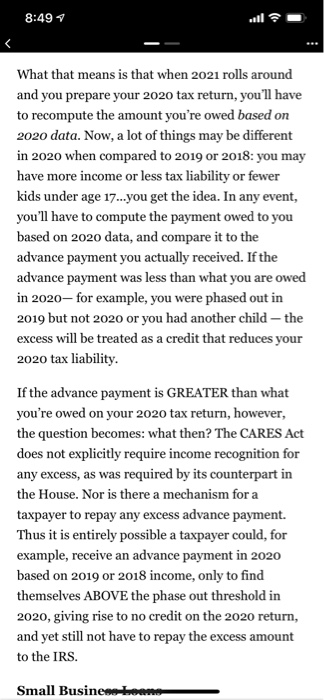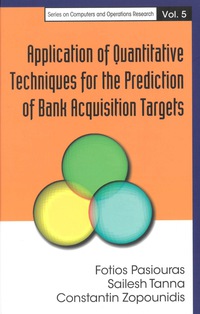Answered step by step
Verified Expert Solution
Question
1 Approved Answer
Please help me understand what this means. 8:491 What that means is that when 2021 rolls around and you prepare your 2020 tax return, you'll
Please help me understand what this means. 
8:491 What that means is that when 2021 rolls around and you prepare your 2020 tax return, you'll have to recompute the amount you're owed based on 2020 data. Now, a lot of things may be different in 2020 when compared to 2019 or 2018: you may have more income or less tax liability or fewer kids under age 17...you get the idea. In any event, you'll have to compute the payment owed to you based on 2020 data, and compare it to the advance payment you actually received. If the advance payment was less than what you are owed in 2020-for example, you were phased out in 2019 but not 2020 or you had another child-the excess will be treated as a credit that reduces your 2020 tax liability. If the advance payment is GREATER than what you're owed on your 2020 tax return, however, the question becomes: what then? The CARES Act does not explicitly require income recognition for any excess, as was required by its counterpart in the House. Nor is there a mechanism for a taxpayer to repay any excess advance payment. Thus it is entirely possible a taxpayer could, for example, receive an advance payment in 2020 based on 2019 or 2018 income, only to find themselves ABOVE the phase out threshold in 2020, giving rise to no credit on the 2020 return, and yet still not have to repay the excess amount to the IRS. Small Busineso bene 
Step by Step Solution
There are 3 Steps involved in it
Step: 1

Get Instant Access to Expert-Tailored Solutions
See step-by-step solutions with expert insights and AI powered tools for academic success
Step: 2

Step: 3

Ace Your Homework with AI
Get the answers you need in no time with our AI-driven, step-by-step assistance
Get Started


